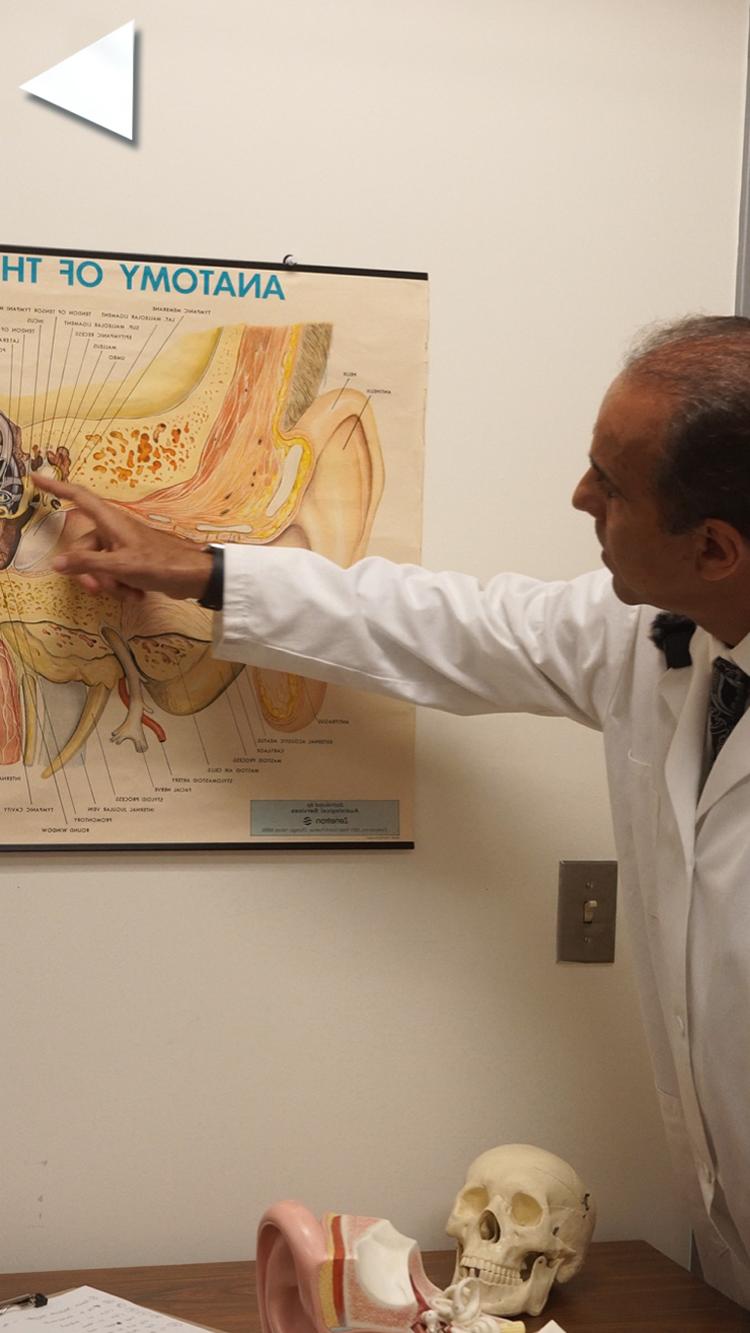2/7/2024
Science in Seconds: Ali Danesh, Ph.D.
Studying the Link Between a Pandemic and Ringing in the Ears
Stress, depression and anxiety can all cause ringing in the ear, known as tinnitus, according to Ali Danesh, Ph.D., professor in the College of Education. Many individuals impacted by COVID-19 experienced changes in their sense of smell, taste, hearing, balance and in some cases, tinnitus. So, Danesh said he was curious if the psychological impacts of the pandemic added one more stressor to life, and worsened tinnitus.
Tinnitus, most often described as ringing in the ears even though no external sound is present, also can be perceived as humming, hissing, buzzing or roaring sounds. According to the United States Centers for Disease Control and Prevention, more than 50 million Americans experience some form of tinnitus – 2 million have extreme and debilitating cases. Worldwide, about 30% of people will experience tinnitus at some point in their life.
Danesh and collaborators conducted a study that focused on the potential indirect effects of COVID-19 on the experience of tinnitus. They assessed whether the severity of tinnitus, as measured using ratings of tinnitus loudness, annoyance and effect on life, was influenced by the lockdown related to pandemic. Although COVID-19 upended so many aspects of society, there is some good news – at least as it relates to tinnitus.
For the study, researchers compared two independent groups of new patients; one group assessed during three months of lockdown in the U.K. and one group assessed during the same period in the preceding year. They examined patients’ hearing and their score on visual analog scale (VAS) of tinnitus loudness, annoyance and effect on life, which were imported from their records. Researchers compared VAS ratings from both groups. All patients were seeking help for their tinnitus for the first time.
Results of the study, published in the Journal of the American Academy of Audiology , do not support the idea that the pandemic led to a worsening of tinnitus loudness, annoyance or impact on life. Any changes in psychological well-being or stress produced by the lockdown did not significantly affect ratings of the severity of tinnitus.
“People experienced various types of adversities during the pandemic, including loss of income, difficulty in obtaining services, experience of the virus itself, and the impact of constant bad news and social distancing,” said Danesh, also a member of Florida Atlantic’s Stiles-Nicholson Brain Institute and Institute for Human Health and Disease Intervention.
“It’s possible that pandemic related factors exacerbate the experience of tinnitus, as tinnitus is linked to general anxiety and psychological well-being. On the other hand, perhaps the effect of COVID-19 on everyday life made individuals with tinnitus realize that there are more important things than tinnitus, putting it into perspective and leading to a decrease of the impact of tinnitus that counteracted any effect of increased anxiety and decreased well-being.”
If you would like more information, please contact us at dorcommunications@31totsuka.com.

Presenter(s), Ali Danesh, Ph.D.
College of Education
Watch video
